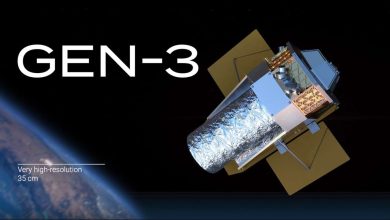
Navigating the Future: The Pros and Pitfalls of AI Chatbots in the Defense Sector
Joseph Mandour
CEO & Founder of FAR Group
The military sector encompasses the production of defense and national safety apparatus, technologies, and services. This includes weaponry, communication networks, surveillance innovations, and other sophisticated technologies.
In recent times, the military sector has emphasized the enhancement of pioneering technologies such as unmanned aerial systems (UAS), artificial intelligence (AI), and cyber defense. These innovations have provided fresh prospects for industry firms along with challenges in terms of compliance and ethical implications.
ChatGPT is an AI-driven chatbot tool developed by Open AI, a United States-based artificial intelligence laboratory. It became the quickest consumer application in history to achieve 100 million active users just two months after its launch in November, and it has already started to demonstrate a significant effect in business and academic settings.
The degree to which ChatGPT (or its technological successors and kin) will impact national security and defense procurement remains uncertain, as the technology has not fully substituted human roles in any substantial manner. However, from initial use instances and feedback regarding the tool, #ChatGPT is already delivering advantages and introducing risks for defense experts.
For instance, various organizations in healthcare, real estate, public relations, marketing, customer service, and media have started utilizing variants of generative AI, particularly ChatGPT, for activities ranging from appointment scheduling to article composition. ChatGPT has also garnered attention for successfully passing several crucial exams, including accurately addressing technical inquiries for an entry-level Google software engineering position and obtaining satisfactory scores on both a law school examination and a Wharton business school paper.
Both smaller and larger entities within the defense arena express concerns regarding time-intensive regulations; however, smaller enterprises often face greater challenges adhering to Federal Acquisition Regulation standards due to their lack of familiarity with government contracting protocols. ChatGPT has the potential to assist in this area.
The advantages of employing generative AI to expedite and streamline the federal acquisition procedure have been acknowledged by the Department of Defense. This year, the Department’s Chief Digital and AI Office disclosed that it is prototyping and assessing “Acqbot,” an AI-enabled contract drafting function. This tool is fashioned to support contracting officers in contract development and lifecycle management. The tool is still under construction and demands substantial input data along with human oversight.
Beyond its prospective advantages in the defense domain, ChatGPT affords cybercriminals a collection of potential applications that jeopardize the cybersecurity framework of American citizens and the federal government. Non-state adversaries, such as script kiddies, hacktivists, and fraudsters, are already leveraging ChatGPT’s capabilities to participate in diverse forms of cybercrime; however, in the future, its technology could be harnessed by nation-state actors to carry out cyber espionage, influence operations, and cyberattacks with increasingly disastrous outcomes. ChatGPT is user-friendly and accessible to individuals possessing basic cyber skills, thus reducing the entry barrier for various criminal entities.
ChatGPT has a considerable journey ahead before it can be deemed reliable for vital national security or defense acquisition assignments. The information it produces is presented with confidence, but it is often unreliable without additional verification—ChatGPT is not equipped to identify potential misinformation.









